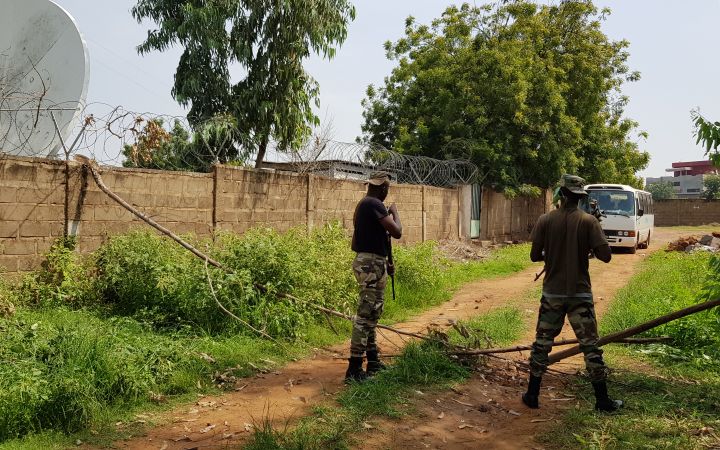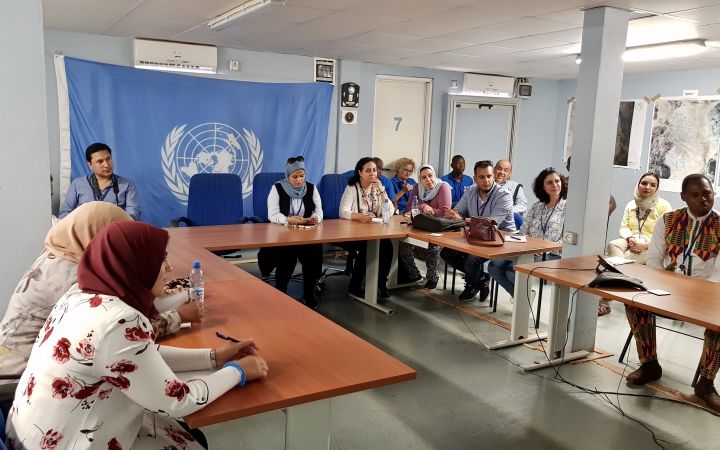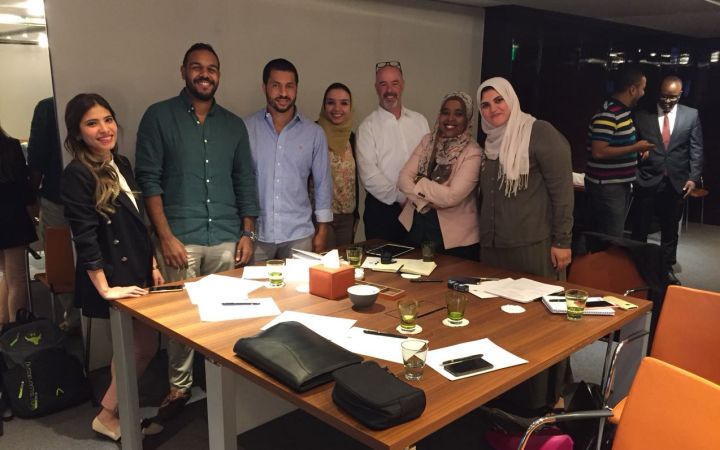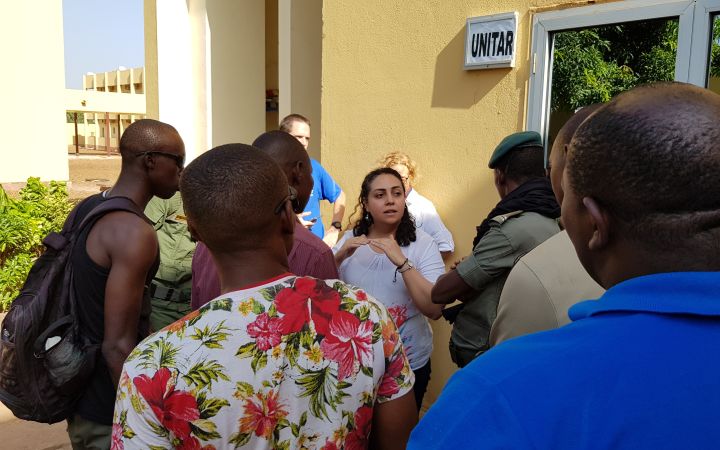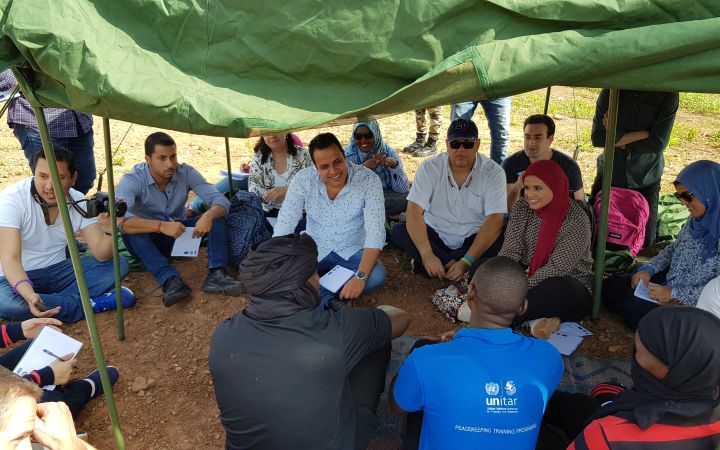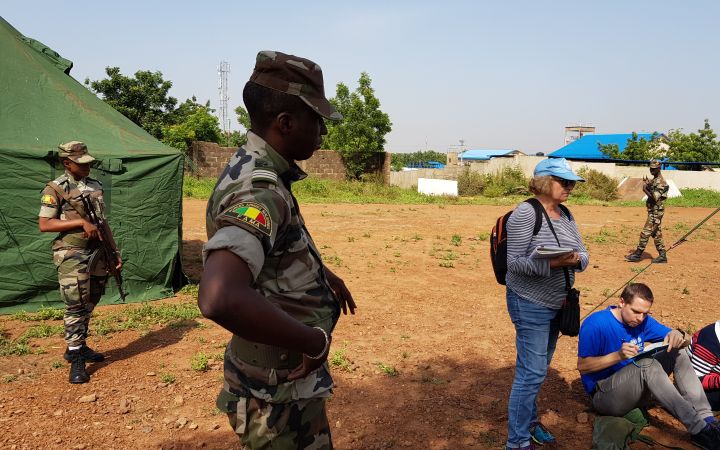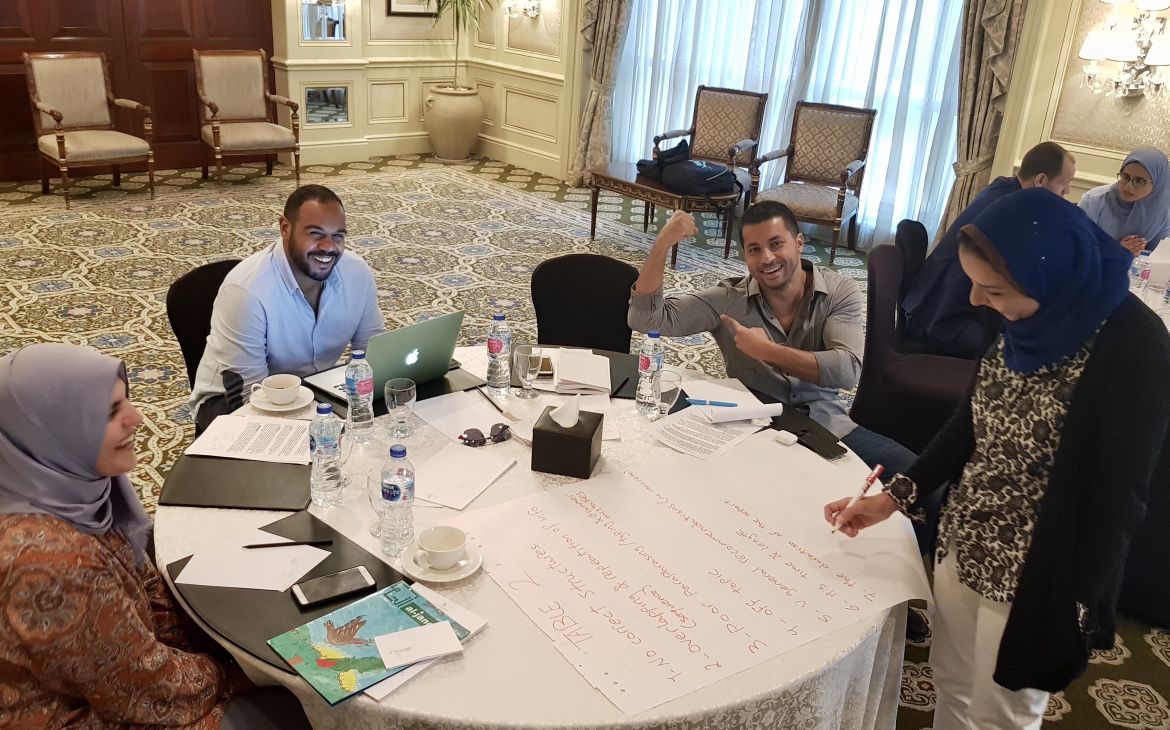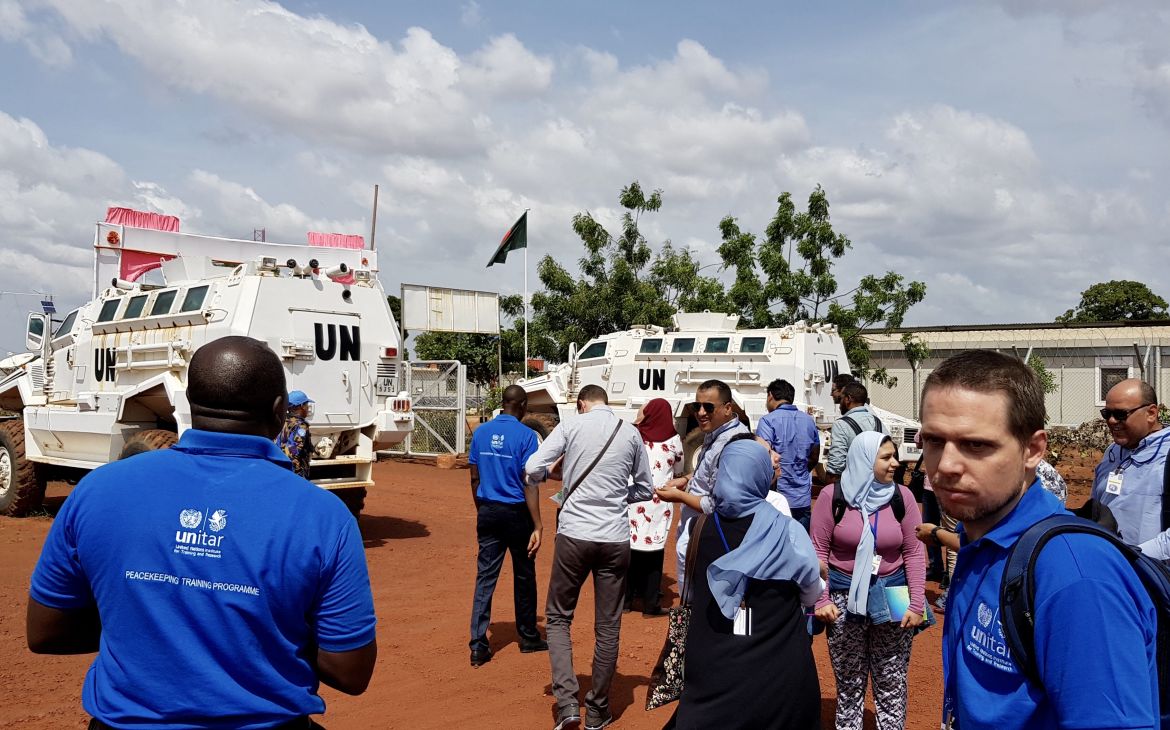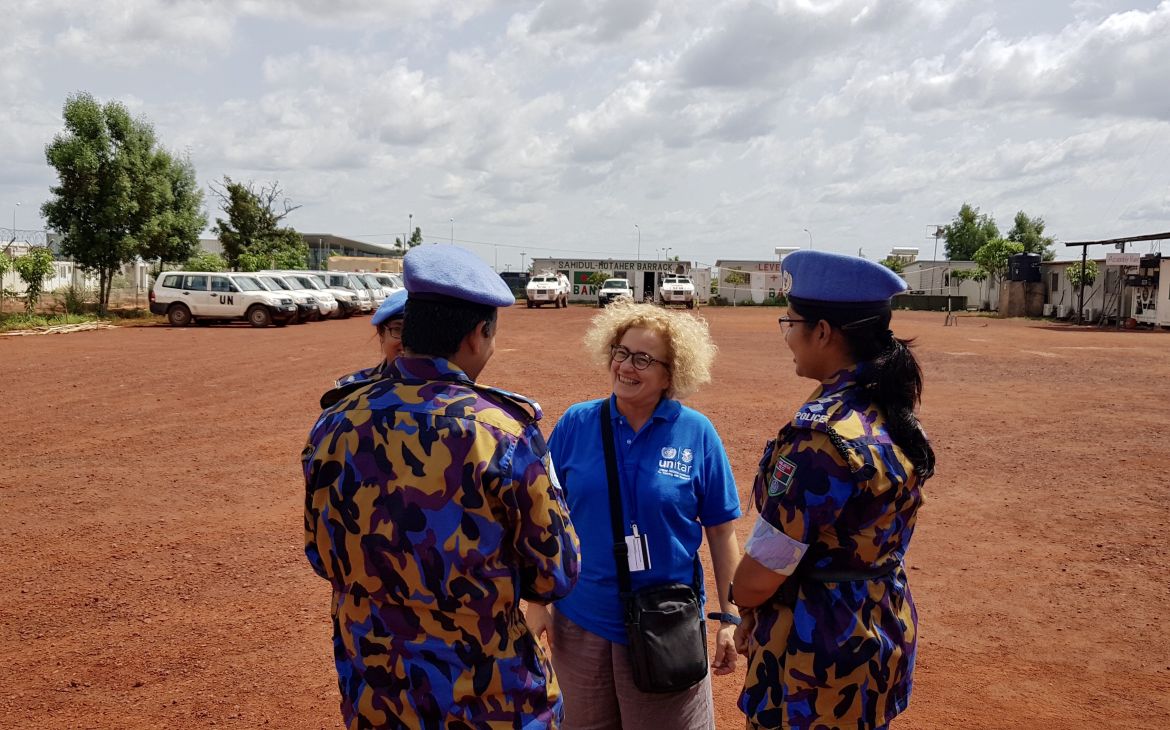The traditional view of a peacekeeping mission is that missions’ mandates are carried out by the military, so we expected to learn how we as civilians could contribute to it and what our organisation could do in collaboration with the UN in the domain of peacekeeping and peacebuilding.
says Ingy Hamdy, Head of Social Media at the League of Arab States (LAS), about her expectations of UNITAR’s intensive two-year training programme. Ingy is one of twenty five LAS Task Force members that took part in UNITAR’s tailor-made online and face-to-face trainings, which unfolded over two years, and helped prepare the Task Force members to make their contribution to peacekeeping efforts.
The Arab World continues witnessing a full spectrum of crises that have tragically affected the lives of millions. Both the number and severity of these situations is unprecedented for the region, and they have caused a significant political and economic turmoil in countries such as Yemen, Syria, Libya, Somalia, and Iraq in a manner that threatens peace and security in the entire region.
The League of Arab States (LAS) is one of the oldest regional alliances in the world and has its responsibility for establishing close cooperation between its 22 member states at all levels (political, social, economic, and strategic). To effectively tackle and manage this multitude of crises, it is essential to enhance its institutional capacities in the fields of crisis management and response. Against this backdrop, in 2012, the United Nations Development Programme (UNDP) and the European Union initiated a joint project entitled “Strengthening the Crisis Response Capacities of the League of Arab States.” The core component of this project was to enhance and build up the operational capacities of LAS to effectively respond to the critical crises faced within the region.
Within this framework, in September 2017, the United Nations Institute for Training and Research (UNITAR) partnered with the United Nations Development Programme (UNDP) to help build and heighten the operational capacities of the League of Arab States (LAS). The core component of this collaboration was providing selected LAS staff --- members of a specialised Task Force --- with comprehensive and intensive training programmes which would enable them to eventually deploy as civilians to joint missions in a post-conflict setting.
The project unfolded in two different phases. The first phase, held in 2018, covered essential technical skills: from introduction to peace operations and to stress, trauma and building resilience. The second phase, which unfolded in 2019, responded to the need for deepening and broadening of the knowledge, skills, attitudes and behaviours from Phase I. It consisted of two face-to-face training workshops in Cairo: one on Mission Start-up, and the other on Mission Mandate Implementation.
Most importantly, these theoretical foundations were complemented by two practical simulations: one held at UNGSC/UNLB in Brindisi, Italy, and the other at the United Nations Multidimensional Integrated Stabilization Mission in Mali (MINUSMA) headquarters in Bamako, Mali. Finally, in order to ensure sustainability of the Task Force, selected members have undergone a week-long Training of Trainers (ToT). All have participated in the final debriefing and lessons learned workshop, where the training and project implementation team filled in gaps, and discussed ways forward.
The LAS Task Force is still a project in the making. However, due to the nature of LAS as a political organisation, I believe the Task Force team will be in charge of political analysis, mediation, negotiation, and such within a mission.
Task Force members have been selected from the LAS Secretariat based on the specific criteria. The Task Force is meant to serve as an expertise hub to support preparations and responses to essential crises in the region.
Ingy Hamdy currently serves as Head of Social Media for the League of Arab States. Ingy studied Political Science at Cairo University where she was interested in a variety of subjects, particularly in a course on “Public Opinion”. Later, she joined the League of Arab States where her passion for media sparked, and this spark led her to pursue a master’s degree in political science with a combined focus in media. In her master’s thesis, she explored a case study on how new media affects the legitimacy of politics.
It all comes down to how, as an organisation, we can connect and reach out to the public.
Ingy acknowledges the challenge of communicating to the public via social media, especially when presenting the point of view of a regional organization that has been around for more than 75 years. What Ms. Hamdy finds fulfilling in her work is to be able to explain the League of Arab State’s vision and mission to the public. It requires creativity and thinking outside of the box, but those moments when she sees the good results are rewarding in the end.
The training programmes developed by UNITAR turned out to be an eye-opening experience as, contrary to Ingy’s expectation that the training would only cover topics relating to peacekeeping, it proved to be even more insightful and challenging.
This was the experience we [LAS Task Force members] needed to fill the gaps in the theoretical studies, especially understanding that simulations are not limited to field visits, but are rather more about practicing the knowledge.
This training programme has not only provided Ingy with the knowledge and the skills of applying it in a practical setting, but also allowed her to attain new competencies, gain insight into her strengths and weaknesses, and gain more confidence in her capabilities as a member of the LAS Task Force.
Learning skills like negotiations, analysis, leadership and such was of a great benefit to me. Additionally, learning more about myself, my strengths and weakness put me right on track of the things I need to work on and the areas I need to improve on to join this line of work.
However, some elements of the training turned out to be especially challenging for Ingy. Recalling the sessions on stress and trauma, the extent to which peacekeeping missions can place a toll on individual wellbeing was quite surprising to her. The versatility of issues and tasks that largely depend on the mandate was another eye-opening experience for Ingy.
We often think a mission’s mandate is either political or military or both, but it also has so much to do with civil affairs, humanitarian affairs, electoral assistance, DDR, protection of civilians, even environmental and cultural preservation sometimes, and much more, which was a pleasant surprise to me.
Ingy also faced personal challenges throughout the training programme, and she recalls how the simulations pushed her out of her comfort zone. ”As a quiet introvert who prefers dealing with papers more than people and work according to my own pace, I was required to work in a crisis environment, make quick decisions, manage a large team, negotiate, and even face potentially threatening situations.” Testing her limits and encouraging her to come out of her comfort zone, the training, according to Ingy, was a great opportunity to learn, grow and boost her confidence.
The knowledge that I’ve gained about myself and how I can work well even if I’m out of my comfort zone was priceless to me. It developed my analytical and communication skills so that now I am able to adapt to the changing context regardless of where and when.
For the past two years, the skills, knowledge, attitudes and behaviours that Ingy acquired through UNITAR’s training programmes have transformed the way she approached her work, both on a future mission and at her permanent duty station: “Whenever the Task Force is deployed, I know what to expect in a mission, and I’ll have the necessary tools to face the challenges that come along with it.”
The story of Ingy demonstrates that this training programme, designed and delivered by UNITAR and funded by the EU through UNDP, does not only provide the LAS Task Force members with the opportunity to expand their understanding of peace operations, but also builds up the skills and provides the tools needed in their own personal and professional lives.
Stay tuned and follow our newsletters and social media (Twitter, Facebook, LinkedIn) for more updates on the projects that transform minds.


